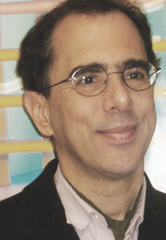 You’ve been curating BuildingEnergy Boston sessions for a long time, Fred. What makes this year’s two sessions on LED lighting unique?
You’ve been curating BuildingEnergy Boston sessions for a long time, Fred. What makes this year’s two sessions on LED lighting unique?
There’s so much happening right now, good and bad, that . I think it will become clear in these two sessions that everyone's lighting practice needs adjustment.
Even years into the “LED Revolution,” simply presuming that “everything LED is advantageous” is dangerous.
Who is the intended audience for these two sessions?
Though the presenters are top-in-the-nation experts, and will presume an audience that’s knowledgeable about energy efficiency, but not necessarily expert in lighting.
Energy professionals need to be adept in lighting, at least to some extent. Lighting is involved in all building types in all sectors -- residential, commercial, multifamily, industrial, new construction and retrofit -- and central to any energy consideration.
Okay, so lay it on me. What’s the bad news?
In the residential arena, there are problems resulting from mismatches between LEDs and dimming systems. There have been some awful stories: an energy auditor switches out all the bulbs in a home for new high-efficiency LEDs, walks out the door, of course taking away the old bulbs. Shortly thereafter, the homeowner turns on the lights, everything goes haywire, the lights flash and flicker. After much anxiety, an electrician is brought in to swap out the dimming system to the tune of hundreds of dollars. So much for straightforward residential auditing.
Outside of residential, a suddenly-widespread myth that we’ll be tackling is that LED replacement tubes are better than straight tube fluorescent lamps. Some large ESCOs (Energy Service Companies) are auditing, retrofitting, and blindly direct-installing new LED tubes wherever fluorescents currently sit. At best, the base efficiency of these devices isn’t much greater than the standard efficient fluorescent. So, at only 12 or 15 watts each, while we might see dramatic energy savings (good), the LED tubes cannot provide equivalent light levels in the vast majority of cases (bad).
Both of these problems border on crises for energy professionals, and BE16 will be the first time they will be discussed in public.
Wow, those are some pretty heavy issues. Is there any good news coming out of your sessions?
Absolutely! The positive developments are extraordinary, and even more dramatic.
On the consumer front, we will explore brand-new major improvements in the stellar Energy Star lighting program for screw-in bulbs. Those who have any involvement with light bulbs will need to hear about huge steps being made in the right direction.
And, we’ll hear about the good work going on to resolve the bulb-dimmer mismatch issue.
On the commercial front, it’s great news that there are now many quality LED fixtures on the market that reduce energy use significantly compared to straight-tube fluorescent. And, when appropriately paired with smart controls, they can reduce energy consumption 30 to 70% compared to fluorescents. Designing and specifying new LED fixtures to maximize efficiency, and training building operators to use smart controls properly, will take more technical expertise than ever. And such opportunities will be expanding as new code requirements come into effect.
What will attendees get from being there in person that they wouldn’t necessarily learn otherwise?
Well, I am cautious to say this, but I don't think any of these developments, positive or negative, can be learned elsewhere. These are breaking issues, at most just a few months old. Perhaps there are references here and there, but they are generally obscure. There is no one good place to go to get the big picture, certainly not as we'll be presenting it at BE16.
Anything else?
All of us in energy conservation work under a tremendous responsibility. On a daily basis, we've got the pressures of our own organizations, and the immediacy of our clients, just like any job. But, the weight of the future of our planet is also upon us.
We might prefer if lighting could be delegated to “experts;” and trust that “they” know what they're doing in responsibly moving toward greater efficiency. However, it has been increasingly clear to me that the frenzy and chaos inherent in this technological revolution means forward and backward motion can be blurry.
It's up to each of us to learn at least enough to know we're going in the right direction.
About Fred Davis
Fred is President of Fred Davis Corporation, wholesale supplier of efficient lighting products since 1983; active in multi-family, weatherization, municipal markets nationwide. Fred chaired the first national conference on energy-efficient lighting (a NESEA conference), and helped devise the first national standards for lamp efficiency. Fred helped introduce the world to the compact fluorescent, the electronic ballast, and now the LED streetlight. A leader in the field, he’s presented on energy-efficient lighting from Stockholm to Sacramento.
Website: http://www.freddaviscorp.com
Our Mission
NESEA advances sustainability practices in the built environment by cultivating a cross-disciplinary community where practitioners are encouraged to share, collaborate and learn.





Add comment